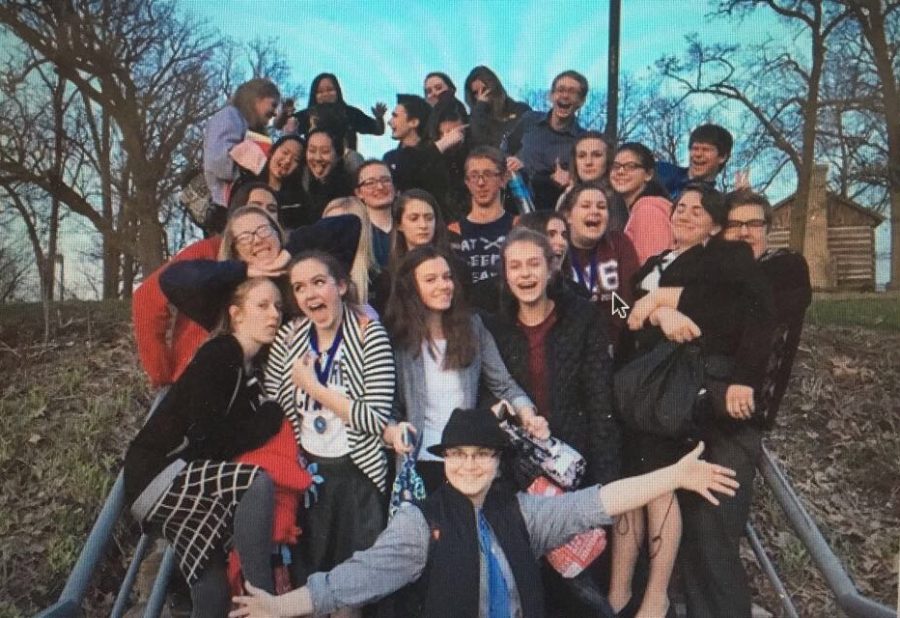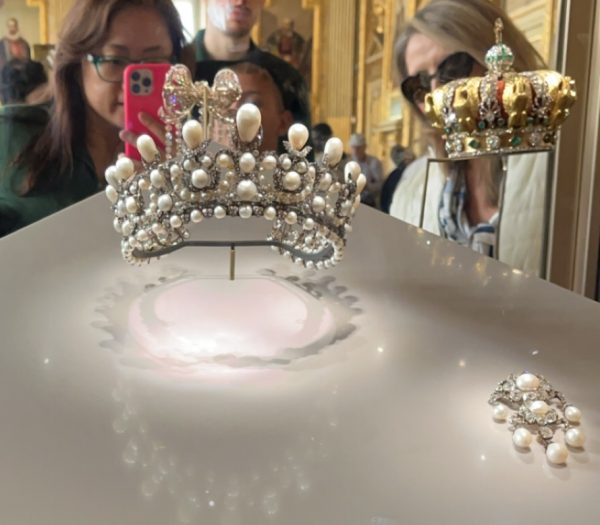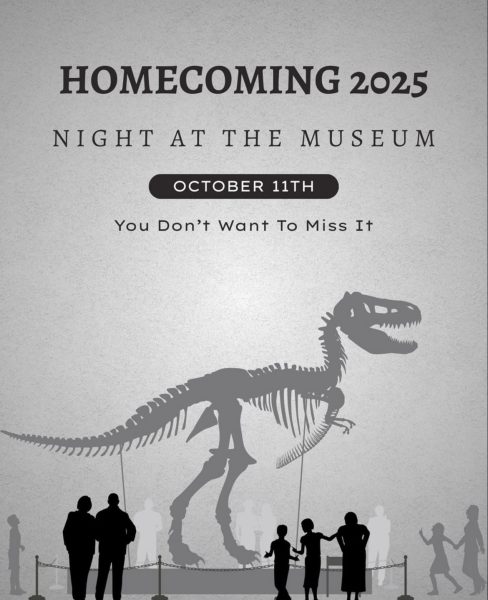Coach and Student Tell About Forensics
“If you think that this forensics is about science, you are in the wrong place,” said staff Rayen Elmergreen at the first Forensics meeting on October 24th. Elmergreen is one of the coaches to the forensics club, along with Paula Nordwig, North campus health room nurse, and Steve Schmid, North campus math teacher. Forensics is a speech and acting club including a little less than 20 categories to speak within. Students can pick the category, and their topic, they can be themselves, says senior Gabby Heier. This is Heier’s seventh year as a competitor; she competed in the “much less aggressive” sport in middle school during sixth, seventh and eighth grade. Elmergreen states that students write or prepare their own speeches and compete against each other “in the spirit of public speaking.” She doubles Heier’s time in the club by participating in the club since she was a freshman in high school. New members can join by to any of the informational meetings, or by contacting one of the coaches via email or in person. The deadline to join for this club is early December, so that students can fully commit and start practices their pieces and new members are not that far behind the rest, Elmergreen says. Currently there are 78 people on the email list, but only about 45 attend the weekly meetings on average says Elmergreen. Heier says, “The experiences I have gotten from forensics are some of the best in my life. Unlike other clubs, we meet people from all around the state and get to be creative with our pieces.” She says she loves forensics because she is able to choose her piece and by that she able to express her view and speak on important topics that she believes in, but don’t always come up causally. Heier also says that she really enjoys the club because it benefits you for life, using those speaking abilities with future classes, or public speeches. Elmergreen agrees saying, “Forensics is a skill you can take with you the rest of your life…being able to hold a conversation, or to lead a meeting,” are all very important skills. Heier and Elmergreen both agree that forensics is a confidence booster. They say kids come in being terrified of public speaking. Coming out with a new confidence that they have never had “is the most rewarding,” Elmergreen says. The hardest part about forensics, according to Heier, would be improving a piece. You have to work “your butt off” on voice inflection, facial expressions, movements and emotions, even when you may have the best piece. Not to mention practicing three or four times a day. Elmergreen says that the hardest part for her would be staying organized with the people that are involved and “helping people follow through” in what they wanted to do in the first place. Advice to new members include “being yourself, we all have our strengths and weaknesses, though strengths help, weaknesses are what really makes you successful,” and “stick with it, don’t quit because it’s scary or things aren’t going your way, it’s worth it.”
“If you think that this forensics is about science, you are in the wrong place,” said staff Rayen Elmergreen at the first Forensics meeting on October 24th.
Elmergreen is one of the coaches to the forensics club, along with Paula Nordwig, North campus health room nurse, and Steve Schmid, North campus math teacher.
Forensics is a speech and acting club including a little less than 20 categories to speak within. Students can pick the category, and their topic, they can be themselves, says senior Gabby Heier.
This is Heier’s seventh year as a competitor; she competed in the “much less aggressive” sport in middle school during sixth, seventh and eighth grade.
Elmergreen states that students write or prepare their own speeches and compete against each other “in the spirit of public speaking.” She doubles Heier’s time in the club by participating in the club since she was a freshman in high school.
New members can join by to any of the informational meetings, or by contacting one of the coaches via email or in person. The deadline to join for this club is early December, so that students can fully commit and start practices their pieces and new members are not that far behind the rest, Elmergreen says.
Currently there are 78 people on the email list, but only about 45 attend the weekly meetings on average says Elmergreen.
Heier says, “The experiences I have gotten from forensics are some of the best in my life. Unlike other clubs, we meet people from all around the state and get to be creative with our pieces.”
She says she loves forensics because she is able to choose her piece and by that she able to express her view and speak on important topics that she believes in, but don’t always come up causally. Heier also says that she really enjoys the club because it benefits you for life, using those speaking abilities with future classes, or public speeches.
Elmergreen agrees saying, “Forensics is a skill you can take with you the rest of your life…being able to hold a conversation, or to lead a meeting,” are all very important skills.
Heier and Elmergreen both agree that forensics is a confidence booster. They say kids come in being terrified of public speaking. Coming out with a new confidence that they have never had “is the most rewarding,” Elmergreen says.
The hardest part about forensics, according to Heier, would be improving a piece. You have to work “your butt off” on voice inflection, facial expressions, movements and emotions, even when you may have the best piece. Not to mention practicing three or four times a day.
Elmergreen says that the hardest part for her would be staying organized with the people that are involved and “helping people follow through” in what they wanted to do in the first place.
Advice to new members include “being yourself, we all have our strengths and weaknesses, though strengths help, weaknesses are what really makes you successful,” and “stick with it, don’t quit because it’s scary or things aren’t going your way, it’s worth it.”







